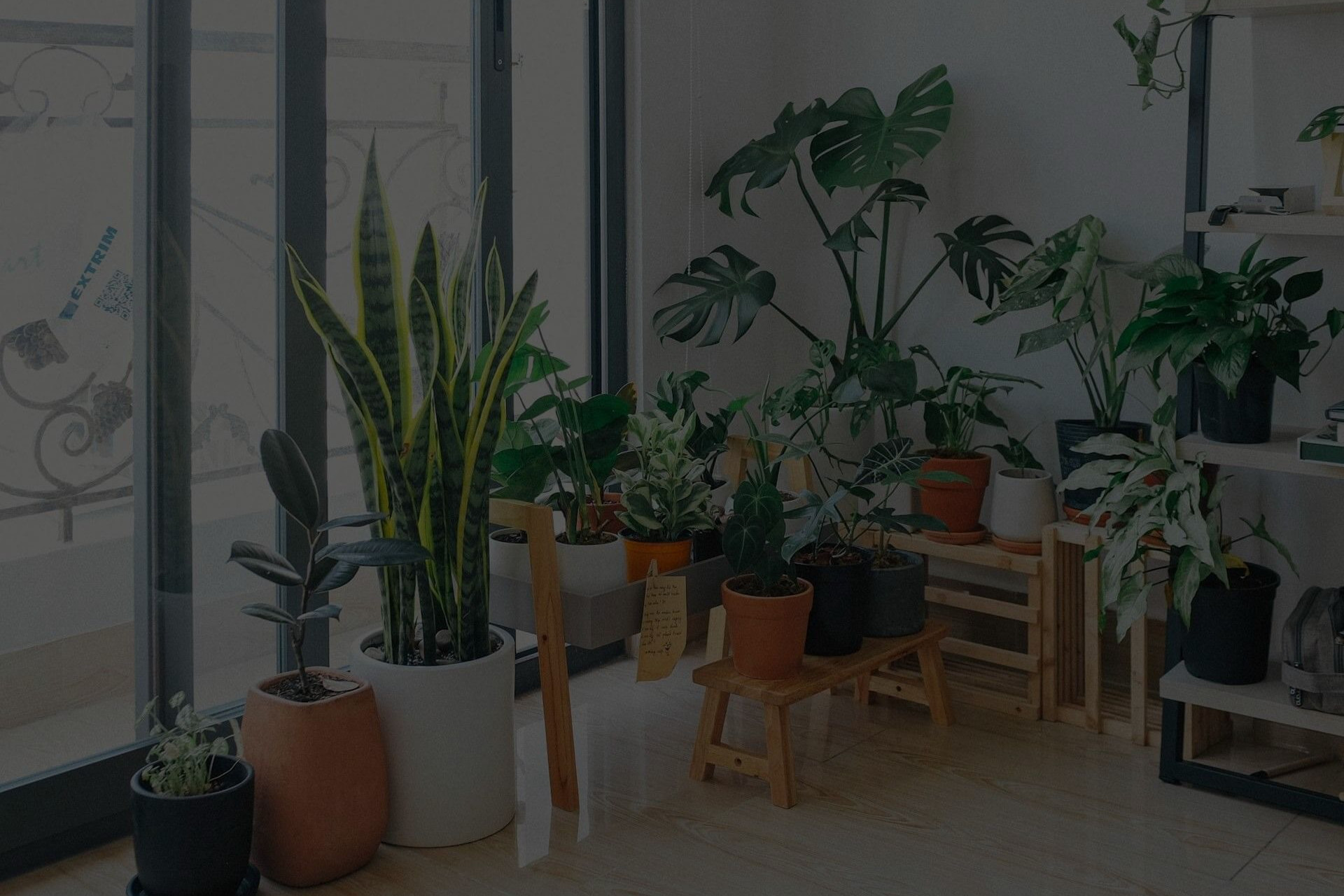Understanding Lettuce Mosaic Virus: A Guide to Plant Care and Prevention
Lettuce Mosaic Virus (LMV) is a highly infectious disease that affects lettuce and other related plants, causing significant damage to crops and impacting yields. As an indoor plant enthusiast, it's essential to understand the risks associated with LMV and take proactive steps to prevent its spread. In this article, we'll delve into the world of LMV, exploring its causes, symptoms, diagnosis, and most importantly, providing expert advice on plant care and prevention.
Table of Contents
What is Lettuce Mosaic Virus?
Lettuce Mosaic Virus is a member of the Potyvirus genus, a group of plant viruses that infect a wide range of crops, including lettuce, spinach, and other leafy greens. LMV is primarily spread through aphid vectors, which acquire the virus by feeding on infected plants. Once infected, aphids can transmit the virus to healthy plants, allowing it to spread rapidly.
Symptoms of Lettuce Mosaic Virus
The symptoms of LMV can vary depending on the severity of the infection and the type of plant affected. Common signs of LMV include:
- Mottling or mosaic patterns on leaves, which can appear as yellow or white patches
- Leaf distortion or curling
- Stunted growth or reduced yields
- Premature bolting or flowering
- In severe cases, plant death
Diagnosing Lettuce Mosaic Virus
Diagnosing LMV can be challenging, as the symptoms can be similar to those caused by other diseases or environmental factors. However, there are several methods to confirm the presence of LMV:
- Visual inspection: Carefully examine the plants for characteristic symptoms, such as mosaic patterns or leaf distortion.
- ELISA (Enzyme-Linked Immunosorbent Assay) testing: This laboratory test detects the presence of LMV antibodies in plant tissue.
- PCR (Polymerase Chain Reaction) testing: This molecular diagnostic technique amplifies specific DNA sequences to detect the presence of LMV.
Preventing Lettuce Mosaic Virus
Prevention is key when it comes to managing LMV. Here are some effective strategies to reduce the risk of infection:
- Use disease-free seed: Ensure that the seeds you plant are certified disease-free to prevent introducing LMV into your garden.
- Implement aphid control measures: Regularly inspect your plants for aphids and use organic or chemical controls to eliminate infestations.
- Practice good hygiene: Wash your hands and tools regularly to prevent the spread of LMV.
- Maintain a clean growing environment: Remove weeds and debris, which can harbor aphids and other pests.
- Use physical barriers: Cover plants with fine-mesh screens or row covers to prevent aphids from reaching them.
Managing Lettuce Mosaic Virus Infestations
If you suspect an LMV infestation, it's essential to act quickly to prevent the spread of the disease:
- Remove infected plants: Immediately remove and dispose of infected plants to prevent the virus from spreading.
- Disinfect equipment and tools: Thoroughly clean and disinfect all equipment and tools to prevent the spread of LMV.
- Implement aphid control measures: Use organic or chemical controls to eliminate aphid populations.
- Monitor for symptoms: Regularly inspect your plants for signs of LMV and take action promptly if symptoms appear.
Breeding for Resistance
Breeding lettuce and other crops for resistance to LMV is an ongoing effort in the agricultural industry. Researchers are working to develop varieties with built-in resistance to the virus, which can help reduce the economic impact of LMV.
Conclusion
Lettuce Mosaic Virus is a significant threat to lettuce and other leafy green crops, but by understanding the causes, symptoms, and prevention strategies, you can take proactive steps to protect your plants. Remember to implement good hygiene practices, monitor for symptoms, and use disease-free seed to reduce the risk of LMV infection. With the right knowledge and precautions, you can enjoy a healthy and thriving indoor garden.
Frequently Asked Questions
What is Lettuce Mosaic Virus?
Lettuce Mosaic Virus (LMV) is a viral disease that affects plants in the Lactuca genus, including lettuce, spinach, and other leafy greens. It is caused by a virus that is spread through contact with infected plants, contaminated soil, or infected aphids.
How does Lettuce Mosaic Virus spread?
LMV can spread through contact with infected plants, contaminated soil, or infected aphids. It can also be spread through contaminated tools, hands, or other objects that come into contact with infected plants.
What are the symptoms of Lettuce Mosaic Virus?
The symptoms of LMV can vary depending on the type of plant and the severity of the infection. Common symptoms include yellowing or stunting of leaves, mosaic patterns on leaves, and reduced growth.
How do I diagnose Lettuce Mosaic Virus?
Diagnosing LMV typically requires a laboratory test, such as an ELISA (Enzyme-Linked Immunosorbent Assay) or PCR (Polymerase Chain Reaction) test. However, a visual inspection of the plant can also help identify symptoms.
Can I treat Lettuce Mosaic Virus?
Unfortunately, there is no cure for LMV. Once a plant is infected, it will remain infected for its entire life. However, you can take steps to prevent the spread of the virus and manage symptoms.
How do I prevent the spread of Lettuce Mosaic Virus?
To prevent the spread of LMV, make sure to wash your hands and tools thoroughly after handling infected plants, avoid touching healthy plants after handling infected ones, and dispose of infected plants properly.
Can I grow lettuce in the same soil where I had an infected plant?
No, it's not recommended to grow lettuce or other susceptible plants in the same soil where you had an infected plant. The virus can survive in the soil for several years and infect new plants.
How do I dispose of infected plants?
Dispose of infected plants by bagging them securely and throwing them away in the trash. Do not compost infected plants, as the virus can survive in compost.
Can I use insecticides to control aphids and prevent the spread of Lettuce Mosaic Virus?
Insecticides can be used to control aphid populations, but they may not completely eliminate the risk of transmission. It's also important to use integrated pest management techniques to minimize the use of chemical pesticides.
Are there any resistant lettuce varieties?
Yes, some lettuce varieties have been bred to be resistant to LMV. Look for varieties with built-in resistance or tolerance to the virus.
How do I care for lettuce plants to prevent Lettuce Mosaic Virus?
To care for lettuce plants and prevent LMV, make sure to provide optimal growing conditions, including adequate light, water, and nutrients. Keep the growing area clean, and monitor plants regularly for signs of infection.
Can I grow lettuce indoors to avoid Lettuce Mosaic Virus?
Yes, growing lettuce indoors can reduce the risk of LMV, as it eliminates the risk of transmission from contaminated soil or infected aphids. However, it's still important to follow proper sanitation and hygiene practices.
How do I sanitize my growing area to prevent Lettuce Mosaic Virus?
To sanitize your growing area, wash all surfaces with soap and water, then disinfect with a solution of bleach and water. Make sure to wash your hands and tools thoroughly as well.
Can I use row covers to prevent Lettuce Mosaic Virus?
Yes, row covers can be used to prevent aphids from transmitting LMV to plants. However, it's still important to follow other prevention and management strategies.
How do I monitor my plants for Lettuce Mosaic Virus?
Regularly inspect your plants for signs of infection, such as yellowing or stunting of leaves, mosaic patterns on leaves, and reduced growth. Monitor plants at least weekly, and take action immediately if you suspect infection.
Can I save seeds from infected plants?
No, it's not recommended to save seeds from infected plants, as the virus can be transmitted through seeds.
How do I handle lettuce plants that are suspected to be infected with Lettuce Mosaic Virus?
If you suspect a plant is infected with LMV, immediately remove it from the growing area and dispose of it properly. Wash your hands and tools thoroughly, and sanitize the growing area to prevent the spread of the virus.
Can I use LMV-infected plants for cooking?
No, it's not recommended to use LMV-infected plants for cooking, as the virus can be transmitted to humans through contaminated food.
How do I prevent Lettuce Mosaic Virus in hydroponic systems?
To prevent LMV in hydroponic systems, make sure to use a clean and sanitized system, monitor plants regularly for signs of infection, and use a virus-indexed nutrient solution.
Can I use biological controls to prevent Lettuce Mosaic Virus?
Yes, biological controls such as beneficial insects and microorganisms can be used to prevent LMV. These controls can help reduce aphid populations and prevent the spread of the virus.
How do I integrate Lettuce Mosaic Virus management into my integrated pest management strategy?
To integrate LMV management into your integrated pest management strategy, make sure to consider all aspects of plant health, including pest management, nutrition, and sanitation. Use a combination of techniques to prevent and manage LMV.
Can I use organic methods to prevent Lettuce Mosaic Virus?
Yes, organic methods such as using beneficial insects, neem oil, and crop rotation can be used to prevent LMV. These methods can help reduce the risk of transmission and promote healthy plant growth.
How do I handle a Lettuce Mosaic Virus outbreak in my garden?
If you experience a LMV outbreak in your garden, immediately remove and dispose of infected plants, sanitize the growing area, and take steps to prevent the spread of the virus. Monitor remaining plants closely and take action quickly if you suspect further infection.
Indoor Plant Care A-Z
Adiantum Fragrans
Aechmea Blue Rain
Aechmea Fasciata
Aeschynanthus Marmoratus
Aeschynanthus Radicans Gesneriad
African Mask
African Spear
African Violet
Air Plant
Alocasia Amazonica
Alocasia Araceae
Aloe
Aloe Vera
Aloe Vera
Aloe Vera Barbadensis
Angel Wings Cactus
Anthurium Andraeanum
Anthurium Crystallinum
Arabian Coffee
Areca Palm
Aroid Palm
Arrowhead Ivy
Arum Lily
Asparagus Densiflorus 'Sprengeri'
Asparagus fern
Asparagus Setaceus
Aspidistra Elatior
Asplenium Antiquum
Asplenium Nidus
Athyrium Filix-Femina
Austrailian Ivy Tree
Austrocephalocereus Dybowskii
Austrocylindropuntia subulata
Azalea Plant
Baby Doll Ti
Baby Rose
Baby Tears
Baby Toes
Baby's Tears
Bamboo Palm
Banana Palm
Banana Plant
Banana Tree
Barbados Aloe
Begoniaceae Maculata
Bengal Fig
Benjamin Tree
Benjamin's Fig
Beringin
Bilbo Cactus
Bird Of Paradise
Bird's Nest Fern
Bird's Tongue Flower
Birds Nest Fern
Blue Pothos
Blue Rain Bromeliad
Blue Rain Plant
Blue Sansevieria
Blue Torch Cactus
Bonsai Ficus
Boston Fern
Boston Fern
Boy Flower
Brighamia insignis
Bromeliad
Buddha's Hand
Bunny Cactus
Burrageara Orchid X Oncidium
Burro's Tail
Butterfly Palm
Cabbage on a Stick
Cabeça-branca
Cactus
Caladium Lindenii
Caladium Magnificum
Calathea
Calathea Marantaceae
Calla Lily
Cambria
Cambria Orchid
Canna Leaved Strelitzia
Cape Jasmine
Cape Primrose
Cast Iron Plant
Cathedral Cactus
Cathedral Plant
Cereus Peruvianus
Ceropegia Woodii
Ceropegia Woodii 'Marlies'
Chain of Hearts
Chain of Pearls
Chamaedorea Elegans
Chinese Ape
Chinese Money Plant
Chinese PLant
Chinese Taro
Chlorophytum Comosum
Christmas Cactus
Christmas Kalanchoe
Cladophora
Cladophora Ball
Climbing Asparagus
Codiaeum Variegatum Var. Pictum
Coffea Rubiaceae Arabica
Coffee Bean
Coffee Plant
Common Purslane
Common Yucca
Cordyline Fruticosa
Corn Plant
Crab Cactus
Crane Flower
Crassula Arborescens
Crassula Hobbit
Crassula Ovata
Croton
Crystal Anthurium
Ctenanthe
Ctenanthe Pilosa Golden Mosaic
Curly Locks Cactus
Curtain Fig
Cycas Revoluta
Cylindrical Snake Plant
Date Palm
Day Flower
Delicious Monster
Devil's Ivy
Devil's Tongue
Devils Backbone
Dieffenbachia Araceae
Donkey's Tail
Dracaena
Dracaena Fragrans
Dracaena Fragrans Golden Coast
Dracaena Fragrans Janet Craig
Dracaena Fragrans Steudneri
Dracaena Magenta
Dracaena Marginata
Dracaena Sanderiana
Dragon Plant
Dragon Scale Alocasia
Dragon Tree
Dumb Cane
Dwarf Arrowhead Vine
Dypsis Lutescens Chrysalidocarpus
Easter Cactus
Elephant Bush
Elephant Ear
Elephant Yucca
Emerald Palm
English Ivy
Entangled Hearts
Epiphyllum Anguliger
Epiphyllum guatemalensis
Epipremnum Aureum
Epipremnum Aureum Neon
Epipremnum Pinnatum
Epipremnum Pinnatum Aureum
Eternity Plant
Euphorbia Enopla
Euphorbia Trigona
Euphorbia Trigona Rubra
Eves Pin Cactus
False African Violet
False Shamrock
Ficus Benghalensis 'Audrey'
Ficus Benjamina
Ficus Elastica
Ficus Elastica 'Ruby'
Ficus Ginseng
Ficus Microcarpa
Fiddle Leaf Fig
First Aid Plant
Fishbone Cactus
Five Holes Plant
Flaming Katy
Flaming Sword
Flamingo Flower
Flamingo Lily
Flamingo Plant
Florist Kalanchoe
Flowering Cactus
Freckle Face
Freckle Plant
French Peanut
Friendship Plant
Garden Ivy
Garden Rose
Gardenia Jasminoides
Giant Bird Of Paradise
Golden Cane
Golden Neon Pothos
Golden Pothos
Goldfish Plant
Guiana Chestnut
Guzmania
Guzmania Bromeliaceae
Happy Leaf Pothos
Hardy Elephant's Ear
Hardy Elephant's Ear
Hawaiian Ti Plant
Haworthia
Haworthia Rafiki
Heart Leaf
Hedera Helix
Hedera Helix Variagata
Hedera Hibernica
Heptapleurum Actinopyllum
Hobbit Jade
Horrida Plant
Horse's Tail
House Plant Cuttings For Propagation
Hoya Carnosa
Hurricane Plant
Hylotelephium Sieboldii
Hypoestes Phyllostachya
Inch Plant
Irish Ivy
Jade Plant
Jade Plant
Java Fig
Java Tree
Java Willow
Jelly Bean Plant
Jungle Boogie
Jungle Bush
Kalanchoe Blossfeldiana
Kalanchoe Delagoensis x Daigremontiana
Kleinia stapeliiformis
Korean Rock Fern
Lace Fern
Laceleaf
Lady Fern
Lake Ball
Lamb's Tail
Lemon Geranium
Leopard Lily
Lipstick Plant
Little Hogweed
Love Plant
Lucky Bamboo
Madagascar Jasmine
Maidenhair Fern
Malabar Chestnut
Malayan Banyan
Maranta Kerchoveana
Maranta Leuconeura
Maranta Marisela
Mason Congo Sansevieria
Measles Plant
Medicinal Aloe
Medicine Plant
Mexican Breadfruit
Milk Barrel Cactus
Miltonia Orchid
Ming Aralia
Mini Philo
Mini Swiss Cheese Vine
Missionary Plant
Mistletoe Cactus
Money Plant
Money Tree
Monkey Jars
Monstera
Monstera Adansonii
Monstera Deliciosa
Monstera Minima
Moss Ball
Moss Rose
Moth Orchid
Mother In Law's Tongue
Mother Of Thousands
Musa
Musa Basjoo Tropicana
N'Joy Pothos
Nemantanthus Gregarius
Nematanthus gregarious
Neon Devil's Ivy
Neon Pothos
Nepenthes Alata
Nephrolepis Exaltata
Never Never Plant
Night Blooming Cactus
Octopus Tree
Odontoglossum Orchid
Oilcloth Flower
Old Man Cactus
Oncidium Orchid
Opuntia Microdaisy Albata
Orchidaceae Phalaenopsis
Oxalis Triangularis
Pachira Aquatica
Pancake Plant
Pansy Orchid
Parasol Plant
Parlor Palm
Parlour Palm
Pass-it-along Plant
Passiflora Caerulea
Passionflower
Patio Rose
Peace Lily
Peace Lily
Peacock Plant
Pearl and Star Plant
Pelargonium Zonal
Peperomia Deppeana × Quadrifolia | Peperomia Tetraphylla
Peperomia Polybotrya
Peperomia Prostrata
Peruvian Apple Cactus
Philodendron
Philodendron 'Monkey Mask'
Philodendron Hederaceum
Philodendron Minima
Philodendron Scandens
Phoenix Canariensis
Pickle Cactus
Pickle Plant
Pilea Depressa
Pilea Mollis
Pilea Peperomoides
Pilocereus Azureus
Pincushion Euphorbia
Pink Jelly Beans
Pink Pork and Beans
Pink Splash
Pink Violet
Pitcher Plant
Polka Dot Begonia
Polka Dot Plant
Polyscias Fruticosa
Polystichum Tsussimense
Portulaca Umbraticolata
Portulacaria Afra Mediopicta
Pot Belly Fig
Pothos
Prayer Plant
Provision Tree
Purple Rain Plant
Purple Shamrock
Purple Wood Sorrel
Rabbit Ears Cactus
Rabbit's Foot
Rabbit's Tracks
Radiator Plant
Raindrop Money Plant
Raindrop Pilea
Rattlesnake Plant
Red Rhipsalis Cactus
Red Rubber Plant
Rhapidophora Tetrasperma
Rhipsalis
Rhipsalis Agudoensis
Rhipsalis Agudoensis
Rhipsalis Heteroclada
Rhipsalis Horrida
Rhipsalis Occidentalis
Rhododendron Inga
Ric Rac Orchid Cactus
Ric-Rac Cactus
Rosa
Rosary Plant
Rosary Vine
Rough Fern
Rubber Plant
Saba Nut
Sago Palm
Saint Barbara's Sword
Saint Paulia
Saint Paulia
Sansevieria Ehrenbergii
Sansevieria Trifascia
Sansevieria Trifasciata
Sarracenia
Satin Pothos
Savannah Geranium
Schefflera Arboricola
Schlumbergera Bridgesii
Scindapsus Pictum Argyraeus
Scindapsus Pictus
Sedum Morganianum
Sedum Rubrotinctum Variegata
Senecio
Senecio Herrianus
Senecio Rowleyanus
Senecio Stapeliiformis
Shark Fin Plant
Shark's Tooth Philodendron
Silver Dollar Plant
Silver Jade Plant
Silver Pothos
Silver Vase
Small-Leaved Fig
Small-Leaved Rubber Plant
Snake Plant
Snake Plant
Snake Tongue
Spanish Moss
Spathiphyllum
Spathiphyllum wallisii
Spear Sansevieria
Spider Plant
Spider Plant
Spiderwort
Spineless Yucca
Split-leaf Philodendron
Spotted Begonia
Star Plant
Stephanotis Floribunda
Stick Yucca
Stranging Fig
Strelitzia Alba
Strelitzia Nicolai
Strelitzia Reginae
Streptocarpus Saxorum
String of Beads
String of Hearts
String of Pearls
String of Tears
String of Turtles
Strings
Surprise Miltoniopsis
Sweetheart Plant
Sweetheart Plant Brazil
Swiss Cheese Plant
Swiss Cheese Vine
Sword Fern
Syngonium Erythrophyllum
Syngonium Nephphytis
Tailflower
Tears Pilea
Thanksgiving Cactus
Ti Leaf
Tiger Tooth Philodendron
Tillandsia
Tillandsia Ionantha
Tradescantia Albiflora
Tradescantia Commelinaceae Multiflora
Trailing Jade
Tropical Laurel
Tropicana Palm
Trout Begonia
True Aloe
Trumpet Lily
Trumpet Pitcher Plant
Trumpet Plant
Turtle Strings
UFO Plant
Umbrella Tree
Urn Plant
Variegated Chain of Hearts
Variegated Entangled Hearts
Variegated Laurel
Variegated Rosary Plant
Variegated Rosary Vine
Variegated Rubber Plant
Variegated String of Hearts
Vriesea splendens
Vuylstekeara Orchid
Wandering Dude
Wandering Jew
Wax Plant
Weeping Fig
Weeping Laurel
Whale Fin Plant
White Bird Of Paradise
White Crane Flower
White Flowered Wild Banana
Wild Banana
Wild Cape Banana
Yellow Palm
Yucca Elephantipes
Zamioculcas Zamiifolia
Zantedeschia
Zanzibar Gem
Zebra Basket Vine
Zebra Cactus
Zebra Lipstick Plant
Zebra Plant
Zebrina Pendula
Zigzag Cactus
Zuzu Plant
ZZ Plant
ZZ Plant
Harley Jennings
Harley Jennings is a renowned indoor plant expert with over 15 years of hands-on experience working with some of the UK's top botany and garden centers. Harley's passion for indoor plants blossomed early in his career, leading him to become a trusted authority in the field. He has spent years nurturing plants, researching the best care practices, and sharing his extensive knowledge with fellow plant enthusiasts.
Harley is the author of the comprehensive guide "The Complete Guide to Indoor Plant Care," where he combines his wealth of experience with a deep love for greenery. This guide provides readers with everything they need to know about indoor plants, from selection and placement to watering, feeding, and troubleshooting common issues.
In addition to his writing, Harley plays a pivotal role in the development of the Botanic Beam app, a revolutionary tool that offers plant lovers a wealth of information in one convenient place. The app simplifies plant care, providing tailored advice, reminders, and expert tips to help users create thriving indoor gardens.
Outside of his professional life, Harley enjoys urban beekeeping, finding a unique connection between nurturing plants and supporting local ecosystems. His relatable, down-to-earth approach makes him a favorite among both novice and experienced indoor gardeners. Whether through his guide or the Botanic Beam app, Harley Jennings continues to inspire and educate, helping people transform their homes into green sanctuaries.






